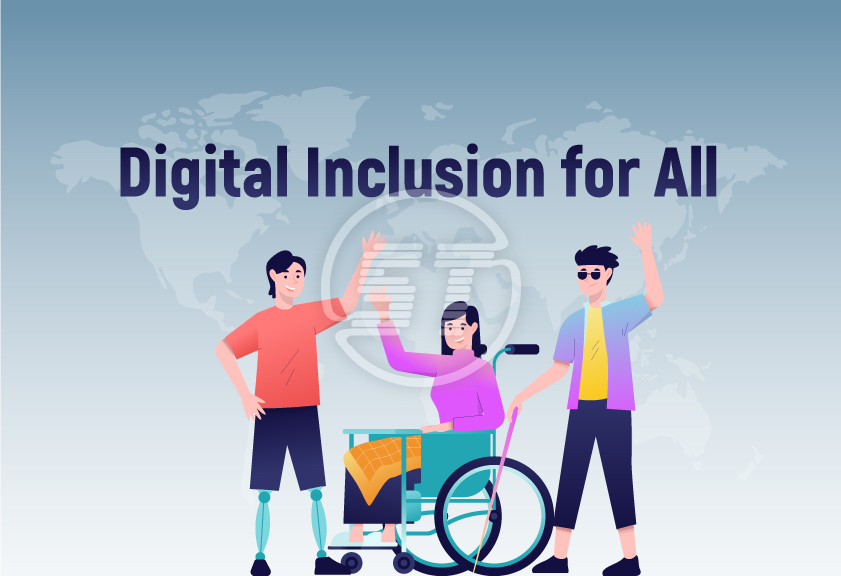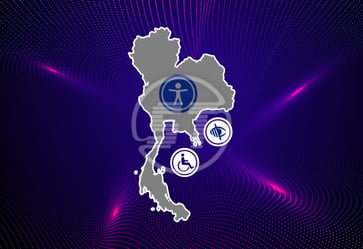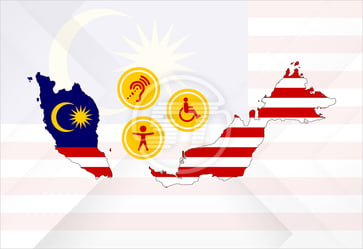“Inclusion is a mindset, not just a program!”
Thus, to program a website for accessibility, an organization must incorporate inclusivity in their core processes.
The Internet is the backbone of this new world shaped by technology for global communication, information exchange, and social engagement. However, for many individuals with disabilities, this digital revolution remains incomplete without true inclusivity. As we commemorate the International Day of Persons with Disabilities on December 3rd, it is crucial to spotlight the pivotal role websites play in fostering digital inclusion and driving disability advocacy.
History of the International Day of Persons with Disabilities
United Nations General Assembly began observing the International Day of Disabled Persons in 1992 under resolution 47/3. The idea behind this annual celebration was to focus on and promote the rights of people suffering from various disabilities, and to increase awareness about disabilities and problems encountered by individuals with disabilities in all aspects of their lives.
However, the Convention on the Rights of Persons with Disabilities (CRPD) adopted this day in 2006 and has further added it to the implementation of the 2030 Agenda for Sustainable Development and other international development frameworks.
Bridging the accessibility gap
The internet has the potential to transform the world, but it is only worthwhile if everybody can access information available on it. However, several websites across the world still fail to meet basic accessibility requirements, inadvertently depriving millions of people from accessing their desired information. According to the World Health Organization, over 1 billion people worldwide live with some sort of disabilities, which encompasses an array of physical, sensory, cognitive, and emotional challenges. And these individuals encounter problem navigating a poorly designed website.
On the other hand, accessible websites are designed with features such as screen reader compatibility, keyboard navigation, alternative text for images, and adjustable font sizes. These implementations empower users with disabilities to interact with each piece of digital content on equal terms.
In short, accessibility transforms websites from static platforms to dynamic tools that help everybody uplift their life without depending on external assistance.
Advocacy through inclusive design
Inclusive web design is not just a technical requirement, it is a statement of values. By prioritizing digital accessibility, organizations display their commitment to equality. Embracing inclusivity is particularly essential for advocacy groups thereby they can work more on the rights of people with disabilities.
For example, websites dedicated to disability advocacy can amplify their impact by being fully accessible. This ensures that their educational materials, campaigns, and resources reach the audiences they aim to support. Furthermore, an accessible website can set example for other organizations, inspiring a ripple effect of inclusivity across industries.
Legal and ethical imperatives
The push for accessible websites is backed by both legal frameworks and ethical considerations. Many countries have mandated laws for web accessibility, such as the Americans with Disabilities Act (ADA) in the United States and the Web Accessibility Directive - EN 301 549 standard in European Union. Beyond legal compliance, there is a moral imperative to build a digital ecosystem where no one is left behind.
Accessibility should not be an afterthought but an integral part of web development from the outset. There must be collaboration among developers, designers, content creators, and disability advocates to ensure that website’s each component is thoughtfully curated and crafted to meet diverse needs of users.
Leveraging technology for greater impact
Emerging technologies offer beneficial opportunities to develop digital diversity, equity, and inclusion in small business and corporations. For example, Artificial intelligence (AI) has capability to enhance screen readers and automate the generation of image descriptions. Voice recognition technology can allow hands-free navigation, while augmented and virtual reality (AR/VR) can create immersive, accessible experiences. By embracing these innovations, websites can evolve and eliminate accessibility barriers!
All in One Accessibility is an AI based accessibility tool that helps organizations to enhance the accessibility and usability of websites quickly. It supports 140+ languages, global accessibility standards, and over 300 platforms.
The call to action
On this International Day of Persons with Disabilities, let us pledge to create a future where digital inclusion will be a universal standard. Organizations, businesses, and individuals alike have a role to play in building an accessible digital world. Every effort counts like conducting accessibility audits, providing training on inclusive design, or simply advocating for change.
As we strive for a more equitable digital world, let’s remember that accessibility is about compliance, connection, empowerment, and the shared belief that everyone deserves a seat at the table. Together, we can harness the power of a website to conquer accessibility issues and create a more inclusive society for all.
Because the web belongs to everyone, and everyone deserves to belong!
This International Day of Persons with Disabilities, take a proactive step towards digital inclusion! Websites are powerful platforms for advocacy, and ensuring they are accessible is essential for fostering inclusivity.
With All in One Accessibility and Skynet Technologies' expert complete website accessibility remediation services, creating a compliant, user-friendly website has never been easier. Whether you need a quick accessibility boost or in-depth remediation, we provide tailored solutions to meet your unique needs. Partner with us to make your website accessible to all, championing a more inclusive digital world! Reach out hello@skynettechnologies.com for more information.


